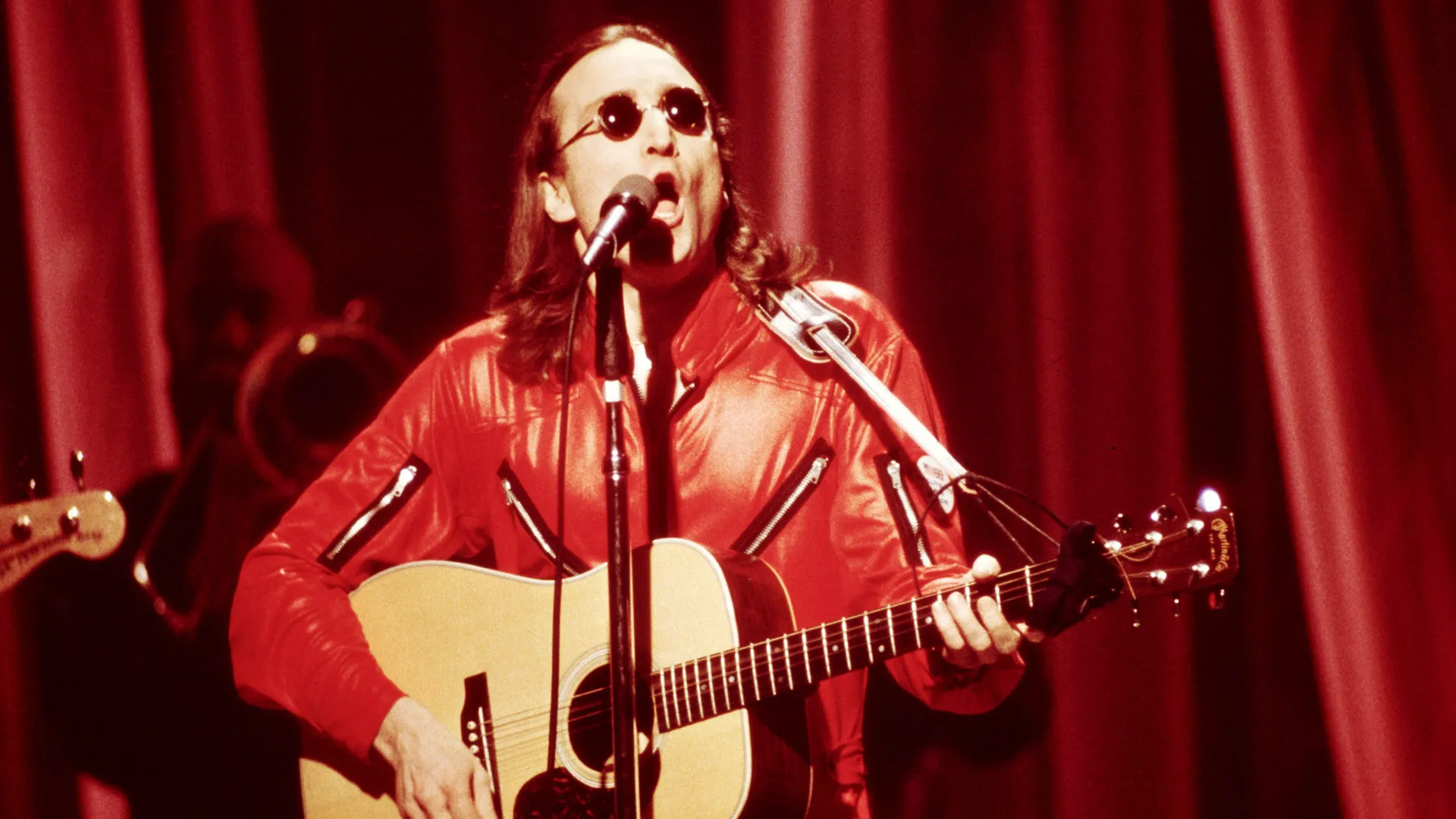John Lennon’s post-Beatles odyssey unfolds over 134 minutes under the steady hand of Alan G. Parker (UK cinemas from 2 May 2025). Borrowed Time: Lennon’s Last Decade offers a chronological portrait of Lennon’s journey from Liverpool legend to New York exile (and occasional peace protester).
The film opens on a tantalizing “what might have been” prologue—a planned 1981 world tour complete with experimental video projections—before snapping us back to his 1971 arrival at the Dakota. It then guides us through solo landmarks (Imagine, Mind Games, Double Fantasy), the so-called Lost Weekend with May Pang, and finally the shadow of his assassination.
Archive footage rubs shoulders with talking heads: journalists, biographers, even chance witnesses. Parker promises an intimate excavation of Lennon’s later layers without slick frills. (Hint: the animated title sequence flickers in and out early on, like a guest who overstayed.) Rather than a rock-documentary roller-coaster, this is a reflective mosaic. Expect moments of raw recollection beside tick-box chronology. A film that hopes to ask, if Lennon was on borrowed time, what interest we have in the debt.
Storytelling Architecture
Parker arranges his material in strict calendar order, yet emotional currents ripple beneath the surface. That initial tour teaser—Lennon dreaming big—sets a “what if” mood. Then the timeline yanks us back to his first New York days: frozen marches, apartment auctions, paparazzi shadows.
Interview segments alternate with archival clips. Some sequences feel like pure cine-journalism (news broadcast snippets, grainy protests), others more like family-album confessionals. The Dakota chapter finds Lennon and Yoko adjusting to high-rise living and, shortly thereafter, becoming rock’s most controversial next-door couple.
Solo album highlights strike a musical rhythm: the gentle sway of Imagine gives way to the introspective pulse of Mind Games, before climactic swerves into Double Fantasy sessions—Jon Smith’s recollections injected with awkward wit. Family drama creeps in via May Pang’s tenure, the so-called Lost Weekend.
Then, abruptly, Parker flips the final pages: tour-vision storyboards scatter on a table, gunshots echo beneath a suddenly silent title card, and we’re left in stunned hush. For all its thoroughness, the pacing occasionally stalls—mid-interview digressions threaten to upend narrative flow. Yet the sheer volume of moments—joyous, tense, absurd—keeps the ship afloat.
Themes and the Man
Borrowed Time examines Lennon’s transformation from Beatle idealist to solo truth-teller and activist. It probes the paradox of a man craving normalcy while burning for global change. In one interview, a witness paints Lennon’s final moments rather than photograph them—a symbol of art confronting death.
His union with Yoko Ono is portrayed without sugar-coating: scenes of creative solidarity segue into whispered tensions. The Lost Weekend emerges less as scandal and more as emotional exile—Lennon seeking respite from his partner who was simultaneously muse and mirror (and occasional muse-mirror fatigue).
Artistic identity flickers between hyper-visibility and retreat. The film marginalizes Lennon’s own songs in favor of talking heads; this choice unsettles viewer intimacy (we hear about Imagine more than we hear it). That marginalization, intentional or not, raises questions about memory’s custody: who decides which Lennon we get?
Socio-political engagement anchors the portrait. Nixon-era paranoia seeps through anecdotes of FBI tapping. Lennon’s anti-war broadcasts and sit-ins ripple into today’s echoes of celebrity protest. Fame’s burden emerges as a constant weight: the cameras never went on vacation.
The emotional core hinges on authenticity. When a journalist describes chewing gum nervously upon hearing news of the assassination, it’s that mundane detail—gum, a tissue, a locket slipping—that humanizes the icon. We glimpse Lennon as a man, not a myth.
Crafting the Chronicle
Parker’s direction favors substance over spectacle. He slices archival footage against interview snippets with a precision that sometimes verges on clinical (editor Ian Farr’s handiwork at full display). Interviews are framed plainly—smoky rooms, mid-shot close-ups—while background music hovers politely, as if unsure whether to intrude.
Animation appears briefly in the titles then disappears, like a guest who forgot to RSVP. This sparseness feels deliberate: the film resists flashy transitions, preferring a raw-bone approach (plain potato-chip method, if you will). Its visual austerity can be off-putting or deeply refreshing, depending on your appetite for ornament.
Sound design is an odd companion: Lennon’s own tracks are muted to make space for recollections. The film feels muted—until the final sequence slams silence into deafening focus, recreating the shock of that December evening.
Memorable images linger: the painting of Lennon’s fallen body, Paul McCartney chewing nervously on live TV, family members’ secret glances. These moments carry more weight than any dramatic flourish.
Strengths: breadth of chronology, depth of testimony, unvarnished access. Weaknesses: talking-head density, musical sidelining, occasional pacing stutters. This is a work for Lennon devotees craving granular detail and for sociocultural historians tracing the 1970s’ tangled ethos. Sometimes raw, sometimes reverent, always thought-provoking.
Borrowed Time: Lennon’s Last Decade is a 2025 British documentary that reached UK cinemas on 2 May 2025 and premiered the same day in an extended cut on the Icon Film Channel.
Full Credits
Director: Alan G. Parker
Writers: Alan G. Parker
Producers and Executive Producers: Alexa Morris, Peter Edmunds, Sam Ojari, Alessia Lendrum
Cast: John Lennon (archive), Yoko Ono (archive), Paul McCartney (archive), Tariq Ali, Vinny Appice, Tony Bramwell, Earl Slick, Ray Connolly, Ringo Starr
Director of Photography (Cinematographer): Steve Kendrick
Editors: Ian Farr
Composer: David Palfreyman
The Review
Borrowed Time: Lennon’s Last Decade
Borrowed Time stitches together a rich tapestry of memories and archives to illuminate Lennon’s final chapter, even if its pacing wobbles under the weight of talking heads and muted music. Moments of genuine intimacy—an eyewitness painting; McCartney’s stunned silence—pierce the documentary’s more clinical veneer. For those drawn to Lennon’s human side and 1970s counterculture’s heartbeat, it delivers unexpected depth.
PROS
- Wealth of first-hand anecdotes
- Chronological clarity
- Raw, unembellished visuals
- Emotional high points
CONS
- Dense talking-head segments
- Music often relegated to the background
- Uneven pacing
- Sparse use of animation
